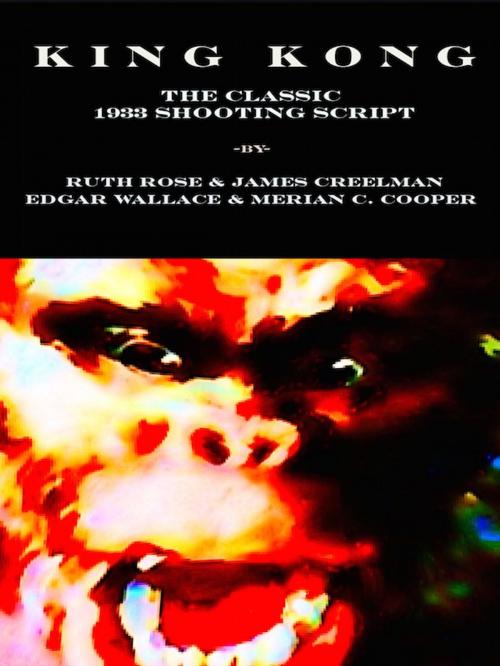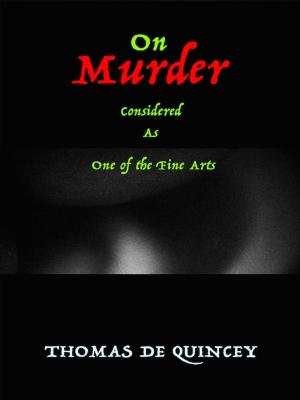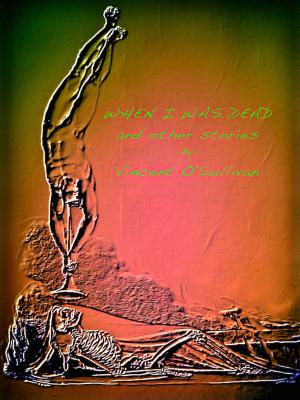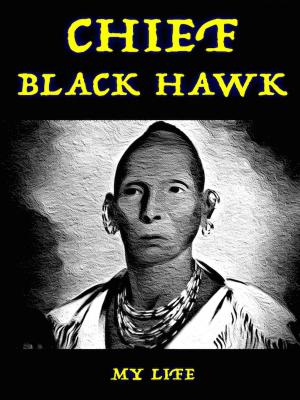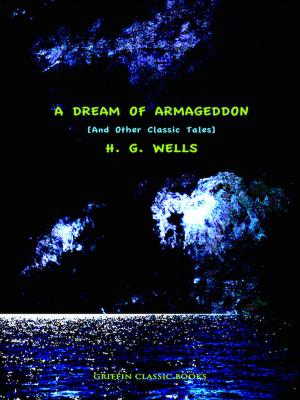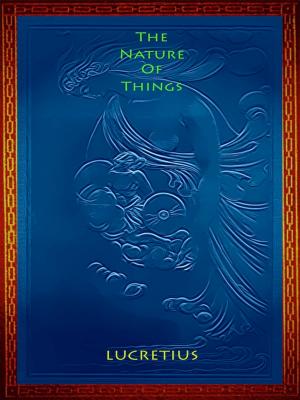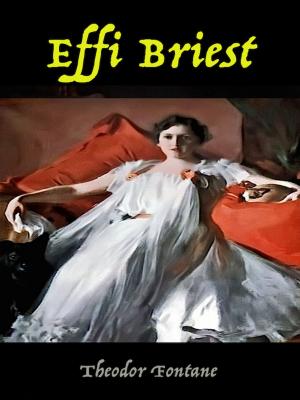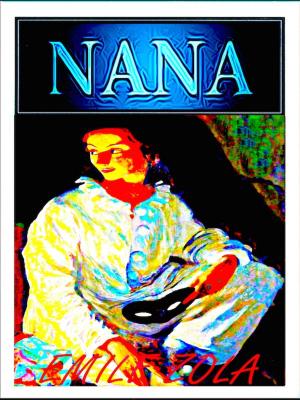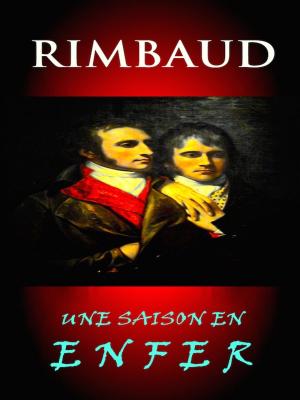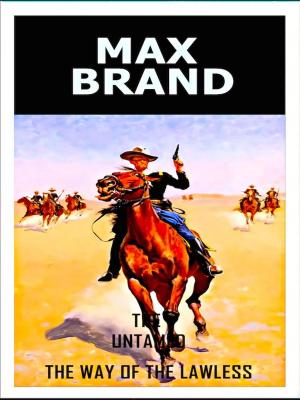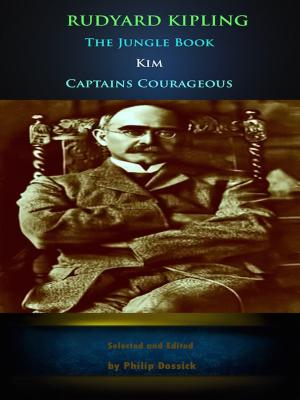| Author: | Beth Rose, James Creelman, Edgar Wallace, Merian C. Cooper | ISBN: | 1230001953596 |
| Publisher: | Editions Artisan Devereaux LLC | Publication: | October 5, 2017 |
| Imprint: | Language: | English |
| Author: | Beth Rose, James Creelman, Edgar Wallace, Merian C. Cooper |
| ISBN: | 1230001953596 |
| Publisher: | Editions Artisan Devereaux LLC |
| Publication: | October 5, 2017 |
| Imprint: | |
| Language: | English |
"How would you like to star opposite the tallest, darkest leading man in Hollywood?"
Enticed by these words, brunette leading lady Fay Wray dyed her hair blonde and accepted the role of Ann Darrow in King Kong—and stayed with the project even after learning that her "leading man" was a 50-foot ape.
King Kong is a 1933 landmark black-and-white monster film about a gigantic gorilla named "Kong" and how he is captured from a remote lost prehistoric island and brought to civilization against his will.
The story, like "Frankenstein" and "Dracula," has taken on the significance of a modern folk tale, layered with obvious moralizing and as familiar as personal history.
Huckster filmmaker Carl Denham corrals struggling actress Ann Darrow into joining others on a tramp steamer exploration into the unknown.
Kong is found and captured in the forests of a far-off island—a gorilla god who's worshipped behind high stone walls by a band of feverish natives.
We know exactly what Kong is thinking and feeling; we perceive his fascination with the little human figure he ends up playing with, and we grasp his protectiveness towards her as well as his petulant, immature rage when he can't have her.
The picture triumphs with the character of Kong himself. He is rendered far more engaging than any of the humans, developing from a frightening grotesque into a tragic, semi-heroic figure. His return to New York in chains takes on genuine pathos.
When Kong hurts, the spasms of his body and the pain on his face register impeccably. It is among the great triumphs in all of animation. Kong has a soul; as big a soul as any monster in any movie ever.
King Kong represents one of the handful of true great leaps forward in cinema history, probably the most perfect movie ever made by a Hollywood studio in what we would today call the "popcorn movie tradition."
"How would you like to star opposite the tallest, darkest leading man in Hollywood?"
Enticed by these words, brunette leading lady Fay Wray dyed her hair blonde and accepted the role of Ann Darrow in King Kong—and stayed with the project even after learning that her "leading man" was a 50-foot ape.
King Kong is a 1933 landmark black-and-white monster film about a gigantic gorilla named "Kong" and how he is captured from a remote lost prehistoric island and brought to civilization against his will.
The story, like "Frankenstein" and "Dracula," has taken on the significance of a modern folk tale, layered with obvious moralizing and as familiar as personal history.
Huckster filmmaker Carl Denham corrals struggling actress Ann Darrow into joining others on a tramp steamer exploration into the unknown.
Kong is found and captured in the forests of a far-off island—a gorilla god who's worshipped behind high stone walls by a band of feverish natives.
We know exactly what Kong is thinking and feeling; we perceive his fascination with the little human figure he ends up playing with, and we grasp his protectiveness towards her as well as his petulant, immature rage when he can't have her.
The picture triumphs with the character of Kong himself. He is rendered far more engaging than any of the humans, developing from a frightening grotesque into a tragic, semi-heroic figure. His return to New York in chains takes on genuine pathos.
When Kong hurts, the spasms of his body and the pain on his face register impeccably. It is among the great triumphs in all of animation. Kong has a soul; as big a soul as any monster in any movie ever.
King Kong represents one of the handful of true great leaps forward in cinema history, probably the most perfect movie ever made by a Hollywood studio in what we would today call the "popcorn movie tradition."
